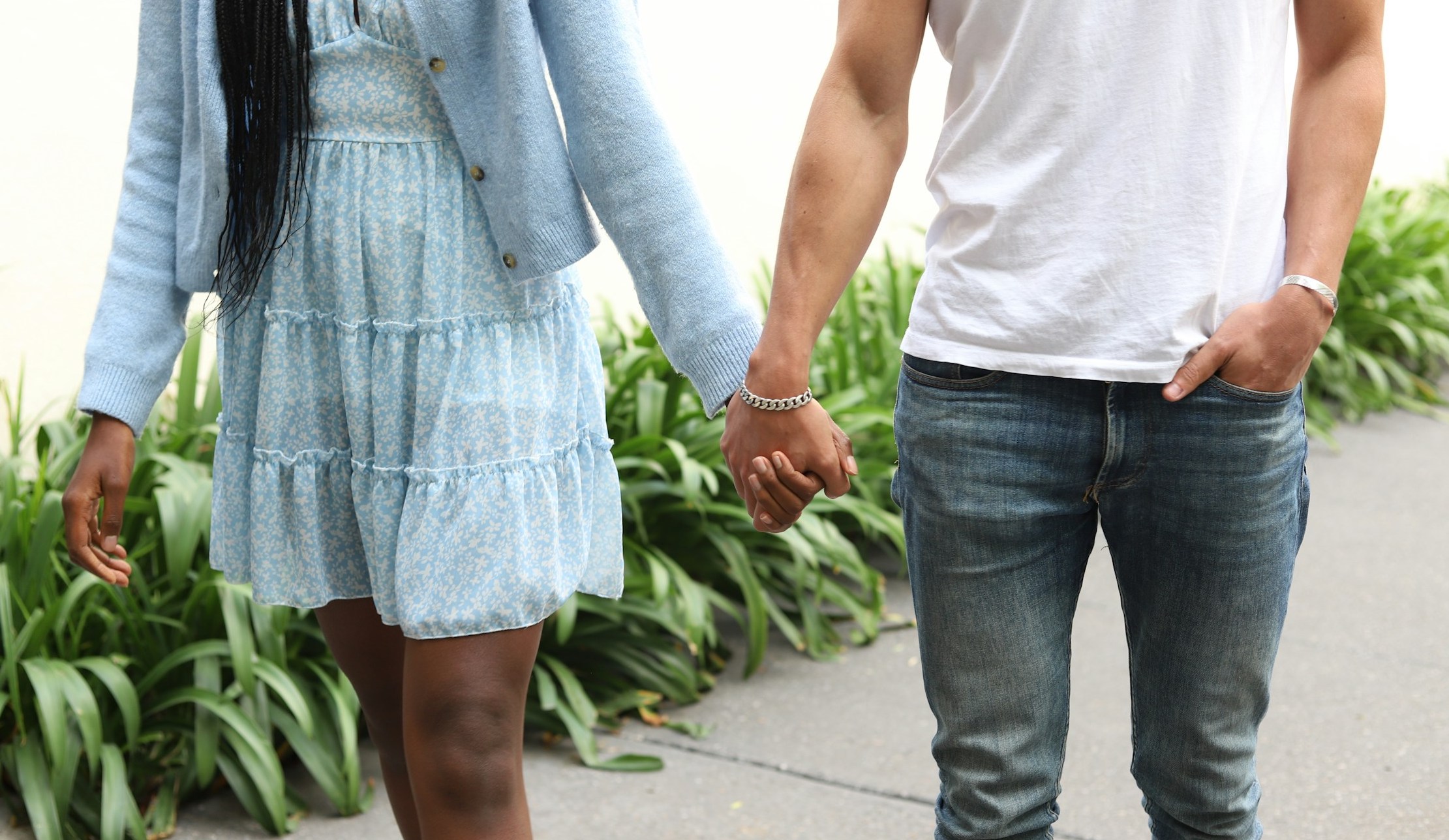A Personal and Professional Perspective
As a therapist and someone who’s in an interracial relationship myself, I’ve witnessed the beauty, complexity, and strength that can emerge from loving across racial and cultural lines. Interracial relationships (IRs) are a powerful reflection of love’s ability to cross boundaries, but they’re not without their challenges. Often, couples in IRs can feel isolated in their experiences, uncertain if the struggles that they face are “normal,” or if support even exists for their unique journey. This newsletter is for those curious about IRs, currently navigating one, or simply seeking to be seen and validated. You are not alone, and your experience matters.
The Invisible Load: Challenges in Interracial Relationships
While every relationship faces bumps in the road, interracial couples often carry an “invisible load,” a layer of complexity that comes from managing external judgment, cultural misunderstandings, and internalized narratives (Bell and Hastings, 2011). These may include:
– Microaggressions from family or friends: Even loved ones may unintentionally express racial/unconscious biases or assumptions that leave couples feeling caught between identities.
– Cultural clashes: Differences in values, communication styles, and traditions can cause tension, especially if they’re not openly discussed or respected (Pittman et al., 2023).
– Public scrutiny: Stares, comments, or subtle social cues can create or make partners hyper-aware of their differences in public spaces.
– Identity strain: Navigating individual identity, particularly if one partner is racialized and the other holds privilege, can sometimes stir up feelings of defensiveness, discomfort, or guilt (Pittman et al., 2023).
These challenges are real and valid. They don’t mean that your relationship is broken, but rather in a system that isn’t always built to hold or celebrate your love.
Resilience and Growth: Strengths in Interracial Relationships
As with anything, it’s important to highlight not just the struggles, but the strengths that interracial couples often develop:
- Empathy and communication: Several IR couples learn to talk about different topics at an early stage, leading to openness and strengthening emotional intelligence (MacNeil and Adamson, 2014).
- Cultural richness: Bringing together two or more cultural backgrounds can foster an energetic, dynamic relationship that’s rich in shared learning and new traditions (Leung, 2021).
- Advocacy and solidarity: Being in an IR often makes couples more attuned to issues of justice, equity, and identity, sometimes leading them to become allies or advocates in their respective communities (Killian, 2013; Lipscomb and Emeka, 2020).
- Resiliency: Enduring external judgment and internal growth often strengthens the bond between an IR couple and builds a deeper sense of loyalty and partnership (Killian, 2013).
These should not be considered small things by any means. They are strengths and skills that many couples never develop unless they are asked to. IR couples often do, because they need too.
Counselling as a Space for Clarity and Connection
In my work with interracial couples, counselling becomes a space to name and normalize these challenges. Many couples express feelings such as, “I don’t want to make it about race, but sometimes I feel like I’m not being understood,” or “I love my partner, but it’s exhausting always having to explain myself.” Others sometimes share a fear of bringing up race-related concerns out of worry they’ll make their partner feel guilty. What’s important to remember is that these are not uncommon experiences. They deserve care, validation, and intentional support. Counselling offers an opportunity to better understand how race and culture impact relational dynamics, to work through family or community tensions, and to explore how power and privilege might surface within the relationship. With guidance and support, couples can deepen trust and intimacy by learning how to approach difficult conversations with compassion rather than defensiveness.
A Culturally Attuned and Relationally Grounded Approach
As someone who has had to confront and unpack both inherited privilege and unconscious bias, I bring a culturally humble lens to my work. I don’t pretend to have all the answers, but I do know how to listen deeply, invite courageous conversations, and help couples reconnect through honesty and respect.
Whether you’re at the start of your journey or feeling stuck in a pattern that’s hard to name, therapy can offer you the space to explore, reconnect, and heal together.
You Don’t Have to Navigate This Alone
If you and your partner are in an interracial relationship and are looking for a safe space to explore your connection, I invite you to reach out. Whether you’re facing conflict, communication breakdowns, or just want to strengthen your bond, therapy can help you move forward with greater understanding and love.
Your relationship is valid. Your challenges are real. And support is available.
References:
Bell, G., Hastings, S. O. (2011). Black and white interracial couples: Managing relational
disapproval through facework. Howard Journal of Communications, 22(3), 240–259.
https://doi.org/10.1080/10646175.2011.590405
Killian, K. D. (2013). Interracial couples, intimacy, and therapy: Crossing racial borders.
Columbia University Press.
Leung, T. (2021). Creating a culture together: Intercultural relationships and
communication. Canadian Journal of Family and Youth / Le Journal Canadien de Famille et de
La Jeunesse, 13, 87–97. https://doi.org/10.29173/cjfy29626
Lipscomb, A. E., Emeka, M. (2020). You don’t get it babe: Intimate partner support coupled with
racialized discrimination among intra-racial and inter-racial couples. Psychology, 11(12), 1813-1825. https://doi.org/10.4236/psych.2020.1112114
MacNeil, T., Adamsons, K. (2014). A bioecological view of interracial/same-race couple
conflict. International Journal of Conflict Management, 25(3), 243–260.
https://doi.org/10.1108/IJCMA-08-2012-0063
Pittman, P., Dush, C., Pratt, K., Wong, J. (2023). Interracial couples at risk: Discrimination, well-
being, and health. Journal of Family Issues, 45, 303–325. https://doi.org/10.1177/0192513×221150994

